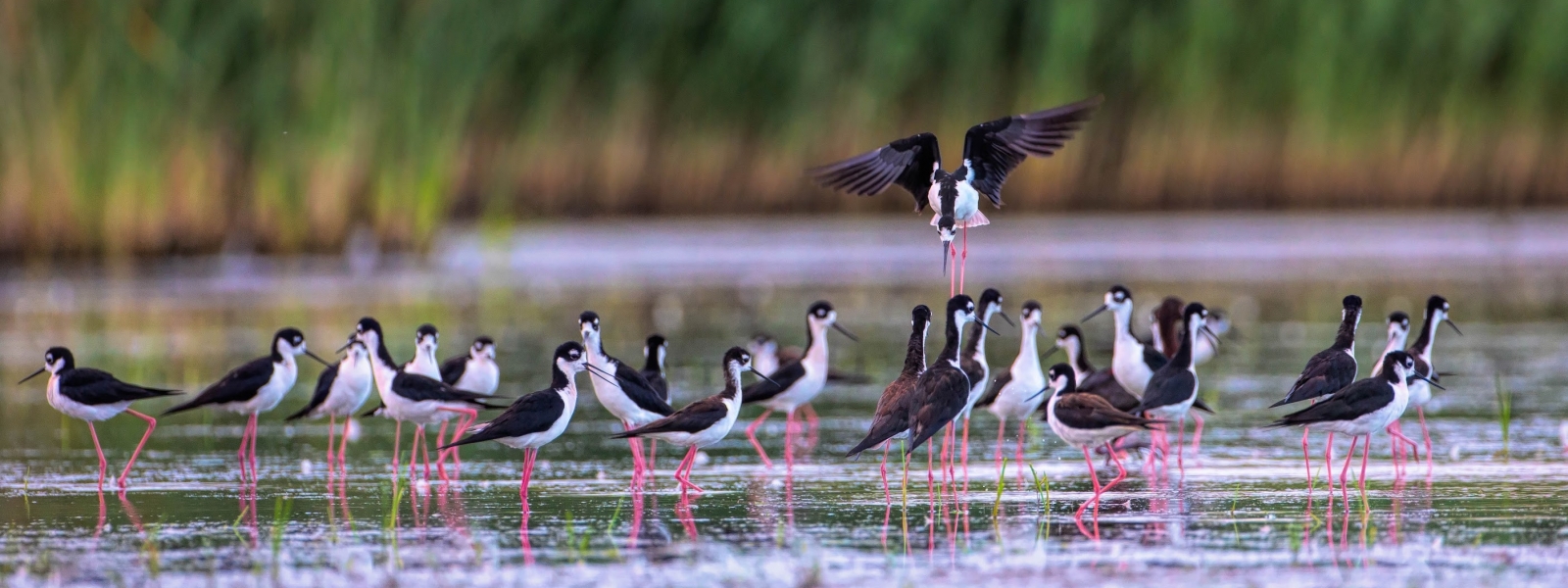At the eleventh hour during the 2018 Legislative Session, with no input from the public or Salt Lake City, the state of Utah took control of tax revenue and land use decisions for more than 17% of Salt Lake City to facilitate construction of an ‘inland port’ - a giant freight transfer and warehousing facility proposed for the city’s northwest side.
About 7,000 acres of the area is undeveloped and is part of the Great Salt Lake ecosystem, providing habitat for over 10 million migratory birds from over 300 species.
The proposed port would further harm our air quality, increase greenhouse gas emissions, create noise and light pollution, further snarl our already congested traffic and harm critical wildlife habitat.
In spring 2018, Great Salt Lake Audubon joined forces with the Center for Biological Diversity, Utah Physicians for a Healthy Environment and west side communities form the Coalition For Port Reform. Many organizations and individuals have since joined this coalition to help bring this ill-conceived, unwanted project to an end. As our mission became clear, the coalition was renamed Stop the Polluting Port Coalition (STPP).
Great Salt Lake Audubon has been speaking out against this project since the 2018 Legislative Session. We have spoken at many public hearings, working sessions, community forums, rallies and at press conferences. As we feel a responsibility to advocate for birds, wildlife and habitat, our message has focused on the harms this port would bring:
Threats to birds that the Utah Inland Port presents
Utah Physicians for a Healthy Environment, in collaboration with other STPP partners Center for Biological Diversity and Great Salt Lake Audubon produced a short video that sums up some of the main problems with this project:
Utah Inland Port – A Dirty Future
Great Salt Lake Audubon also participated in preparing a report to be used to educate legislators during the 2020 Legislative Session. This report includes a breakdown of the many negative effects this project will have on air quality, human health, wildlife and habitat, traffic, light pollution, water pollution, noise pollution and chemical exposure, as well as the problems of lack of transparency and accountability.
For a comprehensive look at this project, read our report
Common Sense vs. the Utah Inland Port
We welcome you to join us to Stop the Polluting Port. For further reading, press releases and remarks, as well as upcoming meetings and events, go to stopthepollutingport.org

